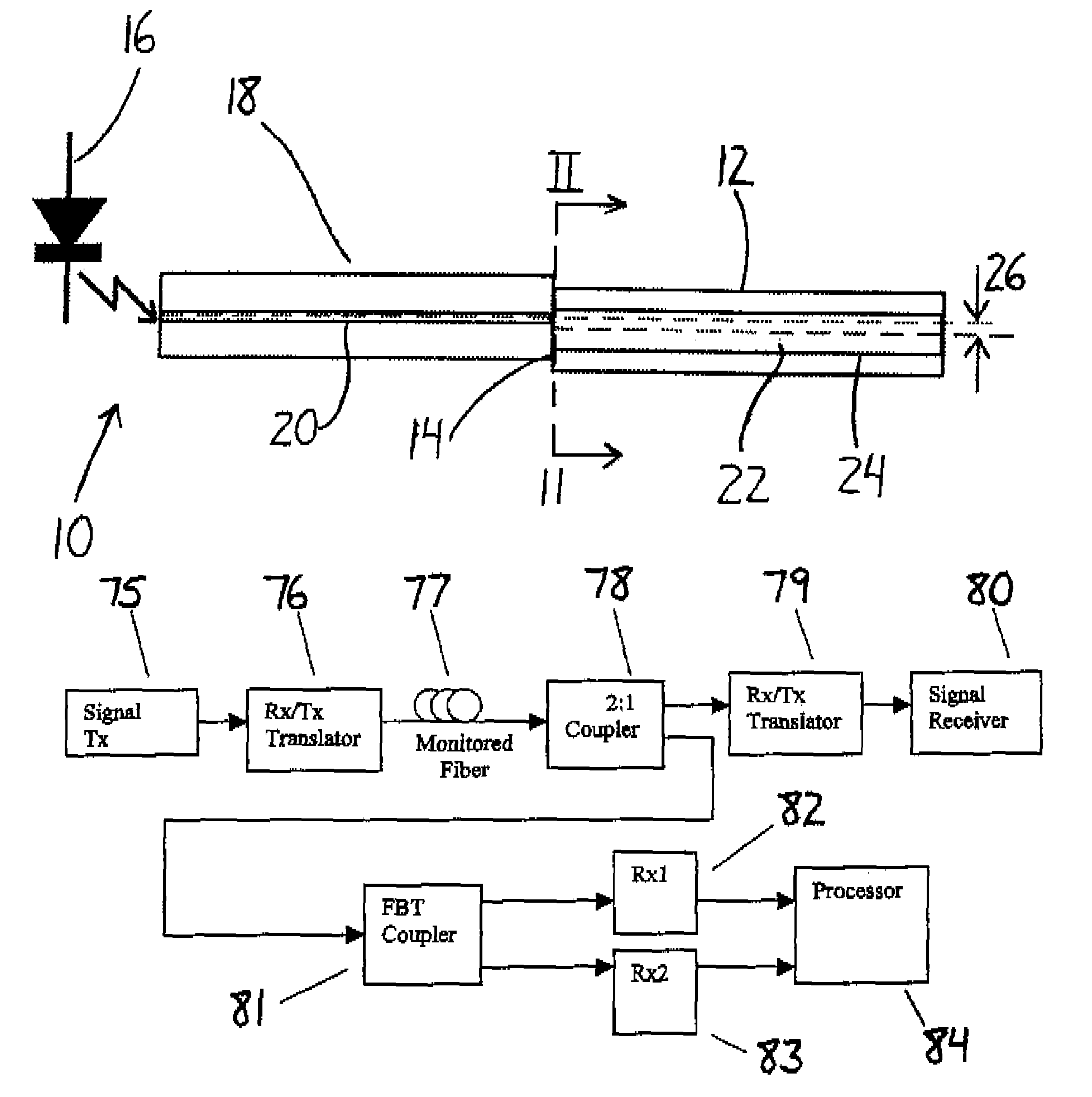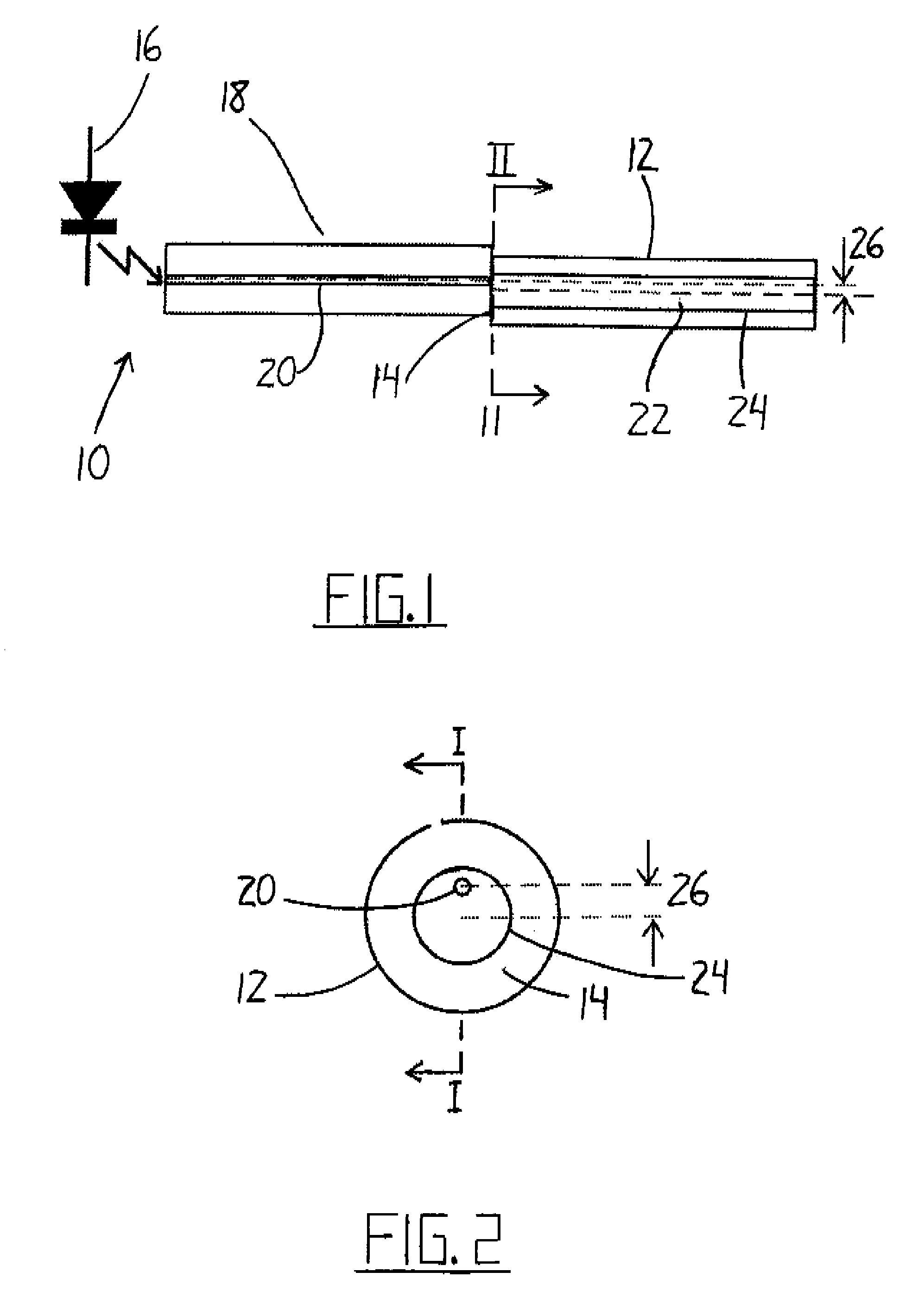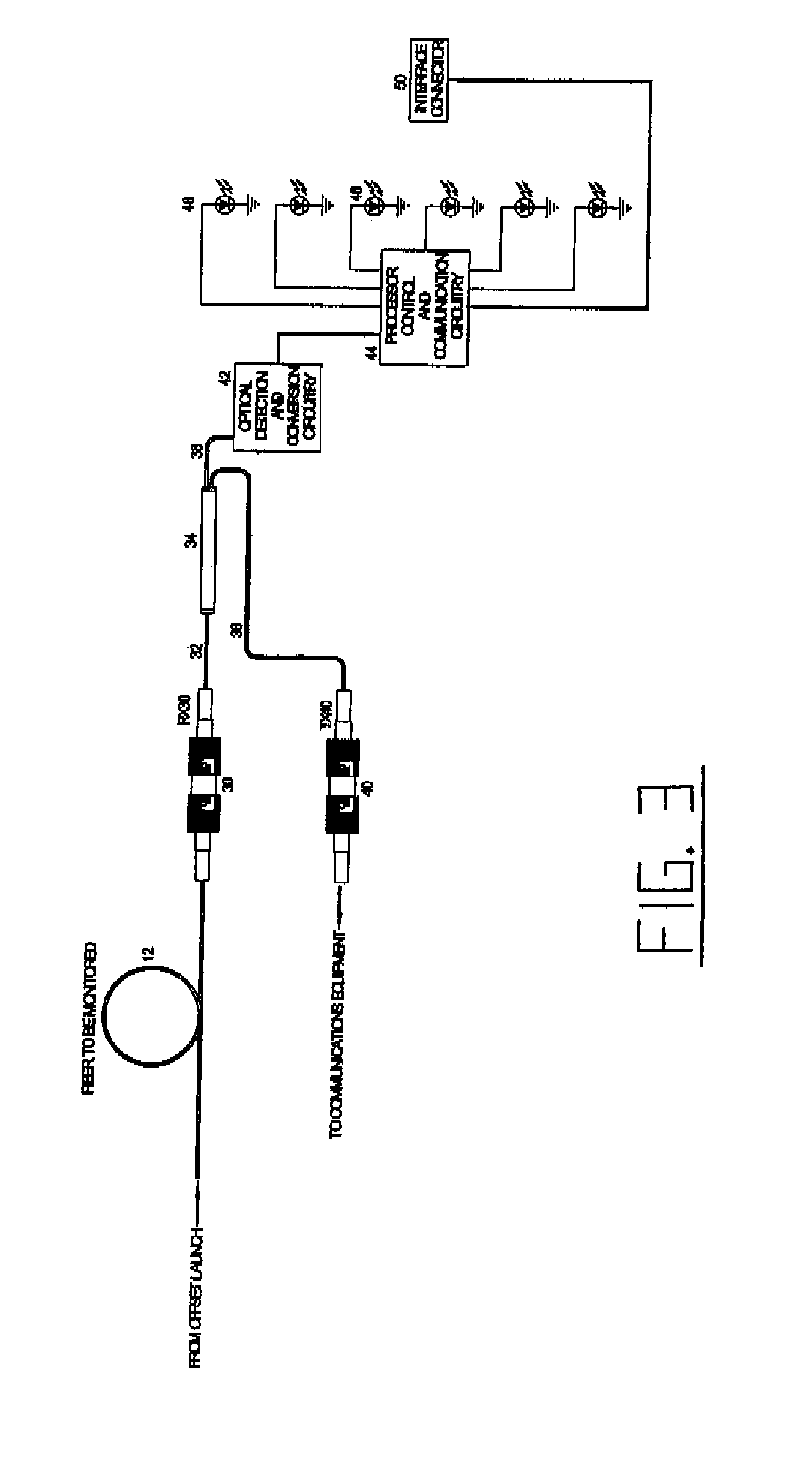Method of high order mode excitation for multimode intrusion detection
a multi-mode optical fiber and excitation technology, applied in the direction of optical elements, transmission monitoring, instruments, etc., can solve the problems of low detection efficiency, affecting the detection efficiency of multi-mode optical fibers, etc., to achieve rapid location and interception, maximum sensitivity, and the effect of high detection efficiency
- Summary
- Abstract
- Description
- Claims
- Application Information
AI Technical Summary
Benefits of technology
Problems solved by technology
Method used
Image
Examples
Embodiment Construction
[0054]Referring to the accompanying drawings, and particularly to FIGS. 1 and 2, a transmitter 10 is illustrated for setting up a narrow spectral width, under-filled, non-uniform mode field power distribution in a multimode optical fiber 12. With this type of mode field, the power distribution in the higher order modes changes with physical disturbance of the fiber, despite the absence of any power loss caused by the disturbance.
[0055]The non-uniform high order mode field may be set up in the multimode fiber 12 by illuminating the proximal (near) or transmit end 14 of the fiber with a point source of light that is offset from the center of the optical fiber core. This can be accomplished by a using a laser, optical lenses and positioning mechanics. In the illustrated embodiment, however, this is accomplished more simply by launching a laser 16 into a short length of single mode fiber 18 spliced to the multimode fiber with the center of its core 20 offset from the center 22 of the co...
PUM
 Login to View More
Login to View More Abstract
Description
Claims
Application Information
 Login to View More
Login to View More - R&D
- Intellectual Property
- Life Sciences
- Materials
- Tech Scout
- Unparalleled Data Quality
- Higher Quality Content
- 60% Fewer Hallucinations
Browse by: Latest US Patents, China's latest patents, Technical Efficacy Thesaurus, Application Domain, Technology Topic, Popular Technical Reports.
© 2025 PatSnap. All rights reserved.Legal|Privacy policy|Modern Slavery Act Transparency Statement|Sitemap|About US| Contact US: help@patsnap.com



